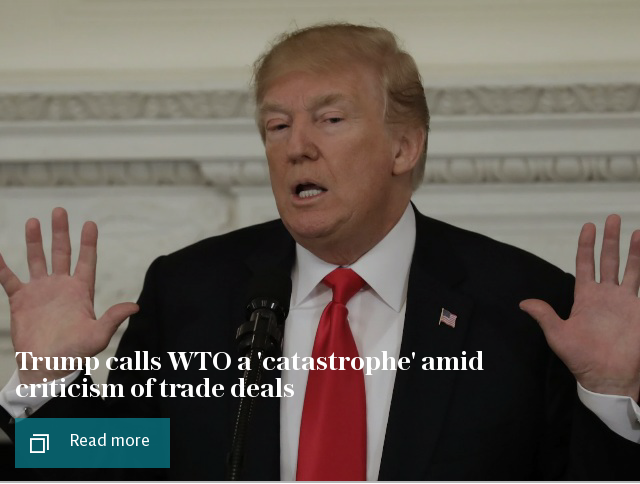How to strike the perfect US-UK free trade agreement: Zero tariffs and easy movement of labour

Free-trade think tanks on both sides of the Atlantic have combined efforts to create a blueprint for an “ideal” agreement between the UK and US.
The 240-page document, penned by the Cato Institute, the Adam Smith Institute and nine other groups, claims to list all “issues elements and provisions” needed to forge a perfect free trade deal.
The report comes amid increased interest in a free trade agreement (FTA) with the US as the UK moves to create an independent trade policy once it leaves the EU.
There is a sweeping commitment to the movement of labour, based on a mutual recognition of professional standards. This would be built upon “existing models” including that of the free movement of labour within the EU.
“The free movement of people will be an important feature of an ideal US-UK free trade agreement. It will open opportunity for workers in both nations to raise their productivity and their standards of living,” the report said.
An ideal FTA would also result in zero tariffs on all goods, no restrictions on competition for government procurement, and the free flow of data, the report said.

The issue of procurement is a highly sensitive one in the UK, with many campaign groups opposing previous trade negotiations on the US-EU Transatlantic Trade and Investment Partnership on the grounds that it would have opened up the NHS to increased private sector involvement.
In a thinly veiled nod to the debate on US-UK trade and food safety, which gave rise to rows about chlorinated chicken, the FTA would also prohibit “restrictions based on scientifically unsubstantiated public health and safety concerns”.

UK director of the European Centre For International Political Economy, David Henig, said that the report was a “serious and detailed proposal for a UK-US trade deal” but it lacked any sense of political context.
Mr Henig added that “trade agreements have become increasingly unpopular” amid rising protectionism and that “reducing barriers to trade with the US will increase them with the EU”.
“In the coming years the UK will have to make some tough trade policy choices as there is no perfect solution that will allow us to trade freely with all other countries," Mr Henig said.
The remarks echo the findings of the UK’s International Trade Committee, which concluded that the UK faced a “binary choice” on trade relations with the US or EU.
The blueprint pays particular attention to financial services. Sheila Lawlor, director at Politeia said that an FTA would "bring great benefit to the US and UK" especially in the financial services sector, in an area where "London and New York are global leaders".
A Department for International Trade spokesman said: “We are committed to forging new trading relationships that create jobs, boost our vital industries and benefit people across the whole of the UK.
“We are currently seeking a wide range of views about four potential free trade agreements, including with the US, and we encourage all interested organisations and members of the public to make their voices heard through our online consultations.”
Separately, the EU issued a paper with proposals for the modernisation of the umpire of global trade, the World Trade Organisation. Chief among its recommendations were "updating the rule book on international trade to capture today's global economy, strengthening the monitoring role of the WTO, [and] overcoming the imminent deadlock on the WTO dispute settlement system".

